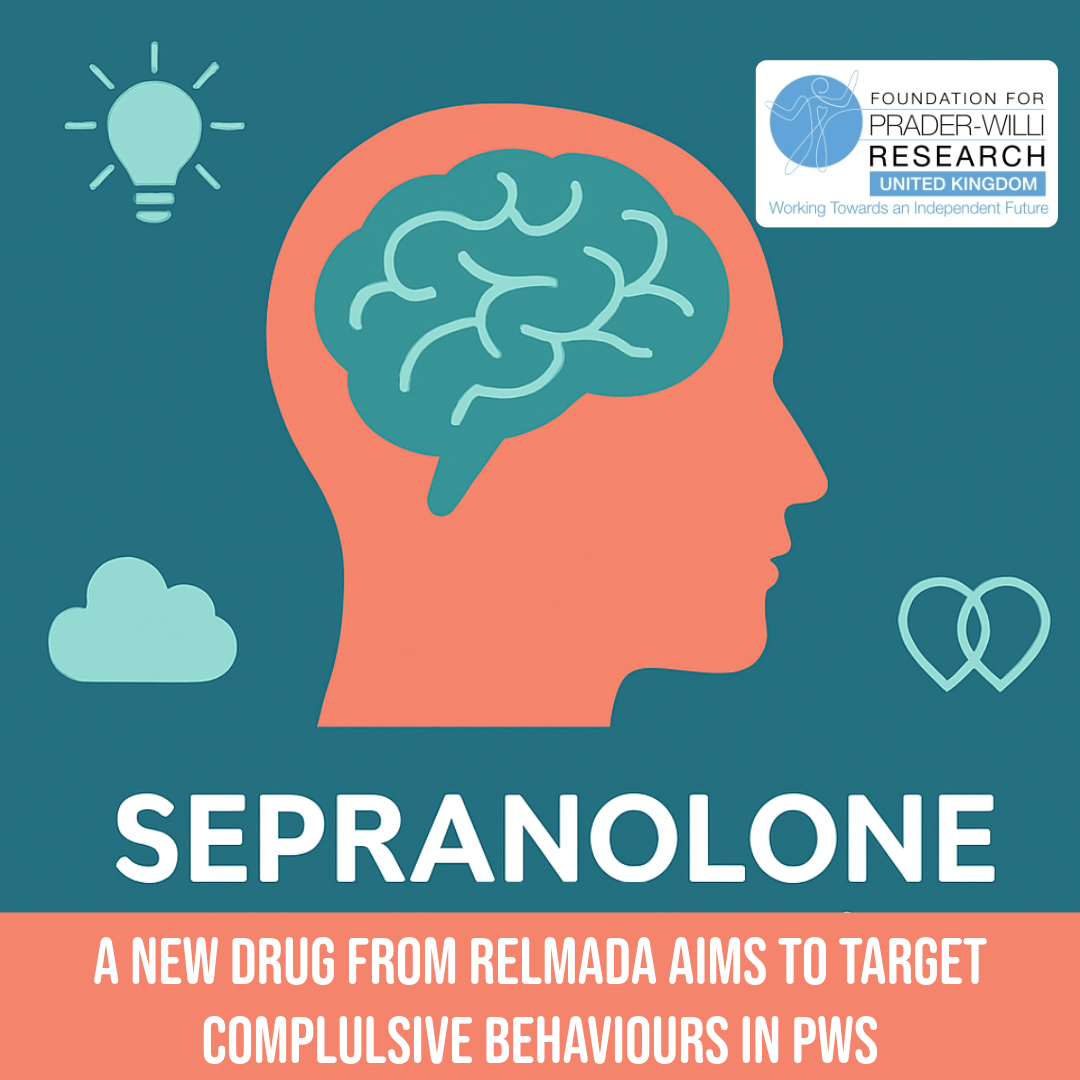
Life with Prader-Willi syndrome (PWS), is a constant balancing act. Between managing food security, navigating emotional ups and downs, and advocating for medical support, the journey can feel overwhelming. We believe research is the key to unlocking a brighter future for everyone with PWS and we are always excited to hear about research into new potential treatments and therapies.
A new trial on the horizon is testing Sepranolone, a first-in-class treatment being developed by Relmada Therapeutics to address one of the most challenging aspects of PWS—compulsive behaviours.
Why Compulsive Behaviours Matter
For families affected by PWS, compulsive behaviours—especially around food—can be one of the most difficult symptoms to manage. These behaviours often include:
- Persistent hunger and food-seeking (hyperphagia)
- Obsessive routines and rituals
- Emotional dysregulation and anxiety
- Impulsivity and difficulty with self-control
These challenges don’t just affect the individual—they impact the entire family, shaping daily routines, social interactions, and long-term wellbeing. While environmental strategies and behavioural therapies are essential, there is an urgent need for medical treatments that address the neurological roots of these behaviours.
What is Sepranolone and how can it help with PWS?
Our brains use special chemical messengers to help us think, feel, and behave. One of the most important is called GABA—it’s like the brain’s natural “calm down” signal. GABA helps reduce anxiety and control impulsive or compulsive behaviours, including those around food.
Another molecule, called allopregnanolone, normally boosts GABA’s calming effects. But in some people—including those with PWS—it can do the opposite. Instead of calming the brain, it can make anxiety and compulsive behaviours worse.
That’s where Sepranolone comes in. It’s a new therapy designed to block the unhelpful effects of allopregnanolone—without interfering with GABA’s natural calming role. By restoring balance in this brain system, Sepranolone may help reduce compulsive behaviours and emotional distress in people with PWS.
This approach could be groundbreaking as it doesn’t just treat the symptoms—it aims to change the underlying brain activity that drives compulsive behaviour.
What’s Happening Now?
Relmada is currently working with the U.S. Food and Drug Administration (FDA) to finalize the design of the trial. They’re also preparing the drug for manufacturing, so it’s ready for testing. If all goes according to plan, the Phase 2 trial will begin in the USA in the first half of 2026.
This trial will focus specifically on individuals with PWS, and it will assess how effective Sepranolone is at reducing compulsive behaviours—especially those related to food.
What This Could Mean for Families
If successful, Sepranolone could offer families a new tool to help their loved ones:
- Feel calmer and more emotionally regulated
- Experience fewer obsessive thoughts and rituals
- Reduce food-related anxiety and impulsivity
- Gain greater independence and confidence
While Sepranolone is still in the early stages of development, its potential is significant. It represents a targeted, brain-based therapy that could complement existing strategies and improve everyday life for individuals with PWS.
We’ll be watching closely as the planning and trial unfolds and keep you updated when we hear more.